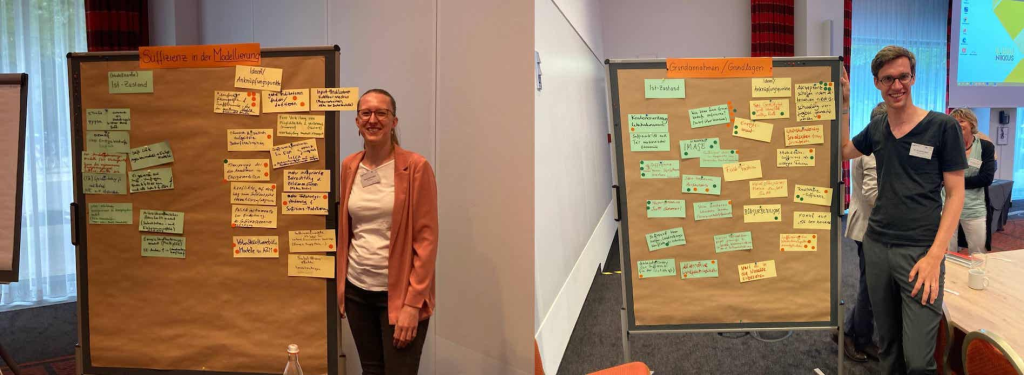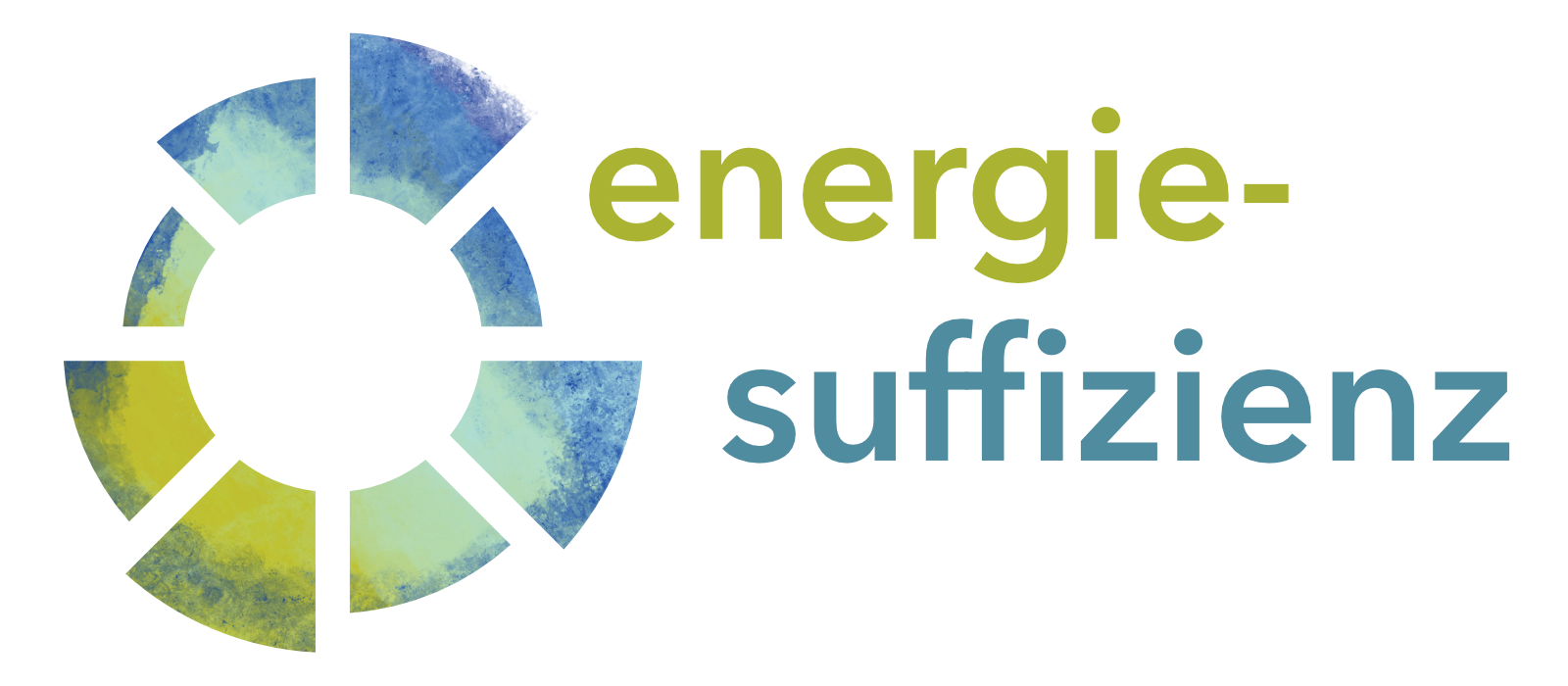
At the first conference of the “Forschungsnetzwerke Energie”, members of all nine networks as well as experts from the fields of “Energy Transition and Society” and “Resource Efficiency” exchanged views for the first time from 13 to 14 June in Berlin. In the process of the conference, the sufficiency workshop “What role does sufficiency play in energy research?” was organised by the Wuppertal Institute, the Öko-Institut and the IZES and conducted by scientists from the junior research group EnSu and the accompanying scientific research EWB.
In the picture: Carina Zell-Ziegler and Benjamin Best from the junior research group EnSu
The aim of the sufficiency workshop was to create an understanding of the importance of sufficiency in energy research. In addition, the participants were to be sensitised to the possibilities of integrating sufficiency into their own research. Several keynote presentations, a joint discussion and a “World Café” (intensive group discussions in a small circle) helped to gradually approach the main messages of the workshop.
The participants first recognised a fundamental tension between the approaches of sufficiency and the individual understanding of freedom of consumption. Additionally, the research question was raised how sufficiency can be enabled in the current growth system. Later, the need for a new narrative structure was recognised. Through this, a sufficiency-oriented life and economy could receive greater appreciation in the public perception.
Based on this, the participants saw the need to establish the topic of sufficiency among the population. For this, the deficits in our society (“What is wrong?”) and the needs (“What do we really want?”) should be uncovered. This should be achieved primarily through easy-to-understand, positive and non-imposing communication to the public and to contact persons in politics. A mixture of bans and prohibitions, as well as incentives for sufficiency-oriented behaviour, such as climate money, were perceived as promising political measures.
Another aspect of the discussion was sufficiency modelling. From the participants’ point of view, this should be meaningful in terms of indicators and parameters. Transparent assumptions and the integration of sufficiency conflicts and behavioural models were also considered important.
In summary, the participants saw sufficiency as a set future topic for energy research. The scope of research needs to be further optimised for this, for example in the areas of methodology (e.g. “How can alternative welfare indicators such as the NWI be included in energy research methods?”) and communication.
Overall, participation and engagement were very high, which underlines the relevance of sufficiency as an important part of energy research. The participants (some of whom had little contact with sufficiency) were given a good insight into the sufficiency discussion, from which they were able to identify further research needs. The workshop leaders were also able to take away some new starting points and were encouraged on many points.
